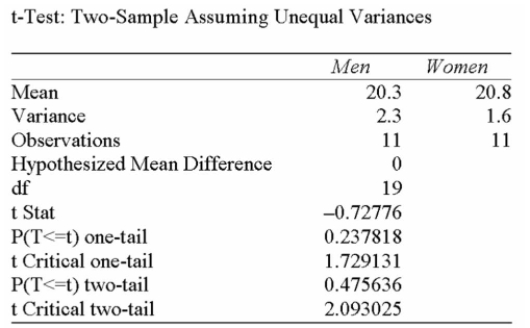A local retail business wishes to determine if there is a difference in preferred indoor temperature
Between men and women. A random sample of data is collected, with the following results (note:
There are slight differences between Excel and MegaStat output in this test) : 
Using a 0.05 level of significance, can we conclude that there is indeed a difference in the
Temperature that men prefer compared to women?
What is the null hypothesis if we assume men to be group 1 and women group 2?
Definitions:
Training Effectiveness
The extent to which training achieves its intended outcomes, such as improving knowledge, skills, and job performance.
Stimulus Variability
Stimulus variability refers to the range of different stimuli or conditions presented during learning or experimentation, to enhance adaptation or understanding.
Identical Elements
A learning theory principle suggesting that transfer of learning occurs when the learning and application situations share the same elements.
Underlying Principles
Fundamental concepts or assumptions that form the basis for a system, theory, or policy.
Q7: The employees at the East Vancouver office
Q27: A local retail business wishes to determine
Q35: Data is collected from 20 sales people
Q48: Barry Company computed the following ratios
Q52: What type of data is the number
Q89: Of 150 adults who tried a new
Q95: What test investigates whether all the independent
Q105: Calculate C Co's financial leverage and identify
Q135: Data is collected from 20 sales people
Q153: If the correlation between two variables is